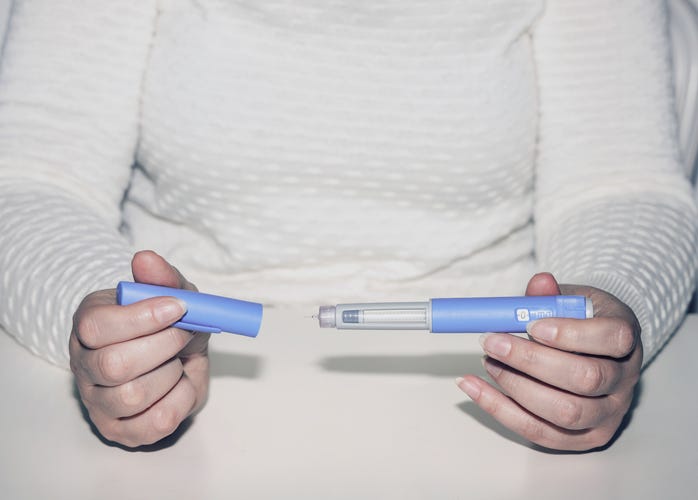Do We Need Another Thin Person's Ozempic Take?
Design Mom's "expansive thoughts" don't come in my size.
A few weeks ago, author and influencer
wrote an essay called “My expansive thoughts on Ozempic, a drug I have never taken.” Last week, she published some follow-up thoughts. Many of you have asked me to write about this, and at first, I’ll admit, I didn’t want to go there. I have long respected Blair as a writer, designer, parent, and content creator. Her work is always aspirational and makes me want to move to Northern California or Normandy, France, but also straightforward and honest. She has written thoughtfully about so many hard topics — depression, gun violence, and abortion, to name a few. And on Design Mom, she hosts one of the few Internet communities able to hold those conversations and welcome a multitude of perspectives without it turning ugly, immediately. As a Mormon mother of six, she can often invite conservatives into conversations in ways that challenge everyone to think harder, and do better.But Blair’s piece on Ozempic did not do any of that. And we’ll talk about why, but first I want to say that I’m not writing this response piece as an attack. I’m writing this with the hope of inviting Blair—but more broadly, the thousands of folks who share her perspective—into a conversation in a way that will challenge us all to think harder and do better—in this case, on behalf of fat people. The ideas she sets forth are ones I see taking hold across the GLP-1 discourse. And they have significant potential to harm fat folks.
So let’s have a hard conversation about Blair’s Ozempic essay.
Let’s start by naming our common ground. Blair is absolutely right that we need less shame and stigma around the idea of daily lifelong medications when so many of us rely on those to manage mental and physical health conditions. In an apocalypse scenario, I’m only going to make it until my inhaler runs out and that’s assuming I haven’t lost my glasses or my allergy medicine first. I also agree with Blair about the cruelty of the widespread judgment that folks losing weight on GLP-1s are somehow “taking the easy way out.” There is no easy way to have a body in this world, and there is for sure no easy way to have a fat body in a world that tells us every day that’s our biggest problem to solve.
And, I appreciate that Blair names the twin harms of fatphobia and diet culture in both pieces. But I wish she had reckoned more directly with her own privilege as a straight-sized person, and her own anti-fat bias, both of which are threaded throughout these pieces.




